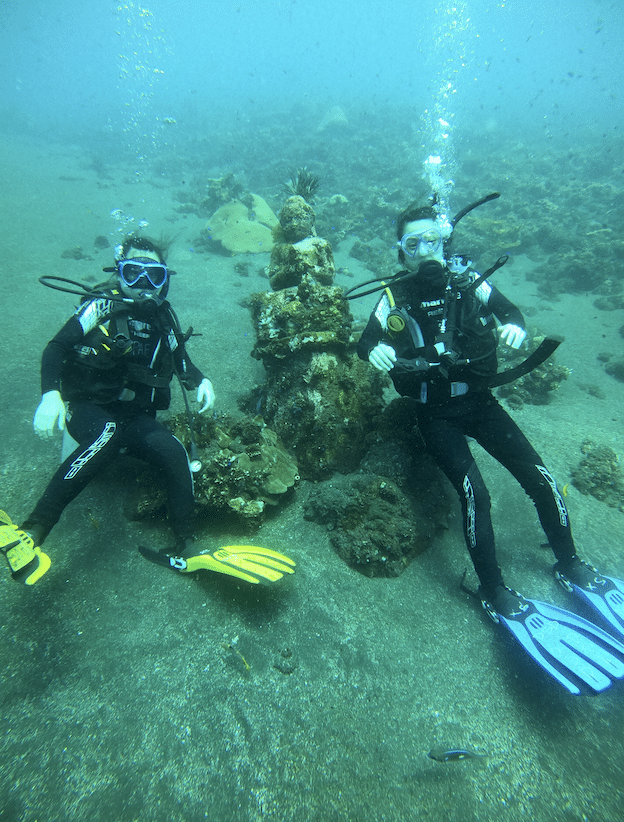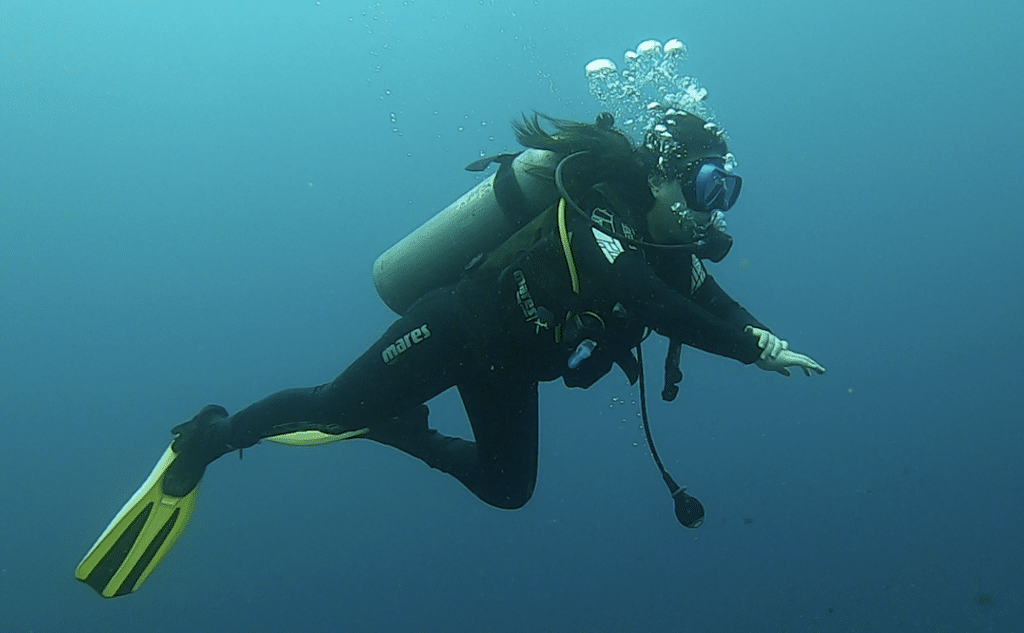As you mastering the 6 Art of perfect buoyancy control for enhanced scuba diving experiences, descend into the crystal-clear waters of Bali, the excitement builds as you prepare to embark on an unforgettable scuba diving adventure. But before you start exploring the underwater world, it’s essential to master the art of perfect buoyancy control. In this blog, we’ll dive deeper (pun intended!) into the world of weight belts, buoyancy control, and breathing techniques that will elevate your scuba diving experiences.
The Importance of Buoyancy Control
Buoyancy control is the foundation of successful scuba diving. It’s what allows you to effortlessly float above a coral reef or hover near a school of fish without disturbing their natural habitat. When done correctly, buoyancy control enables you to conserve energy, reduce stress, and even prolong your dive time. So, how do you achieve perfect buoyancy? It all starts with understanding the concept of buoyancy itself.
Understanding Buoyancy: Why Weight Belts Matter

Buoyancy is the upward force exerted by a fluid (like water) on an object or diver. In scuba diving, we use weight belts to counteract this force and achieve neutral buoyancy. A weight belt helps you maintain your desired depth without sinking or floating away from the dive site. But, it’s not just about the weight; it’s also about the art of fining and body positioning.
Breathing Techniques for Better Buoyancy Control
Proper breathing techniques are crucial for effective buoyancy control. When you breathe in, your body expands slightly, causing you to lose some buoyancy. Conversely, when you exhale, your body contracts, gaining buoyancy. By mastering the art of breathing underwater, you can fine-tune your buoyancy and maintain a steady depth. It’s all about rhythm and timing.
The Power of Relaxation: Keeping Calm Underwater
As scuba divers, we’re often told to ‘keep calm and carry on.’ But what does that mean in the context of buoyancy control? When you’re relaxed, your body naturally adjusts to the water’s buoyant forces. Tension and anxiety can cause you to sink or float away from your desired depth, making relaxation a vital component of perfect buoyancy.
Mastering Buoyancy Control: Tips for Success
So, how do you put it all together? Here are some tips for mastering buoyancy control and achieving the perfect dive experience. Start by practicing your breathing techniques on land or in shallow water. Get comfortable with your weight belt and adjust it according to your needs. Practice relaxation exercises like visualization or deep breathing to calm your nerves. And most importantly, stay focused and maintain a steady rhythm.
Conclusion: The Reward of Perfect Buoyancy
Mastering the art of perfect buoyancy is not just about technical skill; it’s also about respecting the underwater world and its inhabitants. When you’re able to control your buoyancy, you’ll be rewarded with a more immersive and enjoyable diving experience. So, take the time to practice, relax, and breathe – your body (and the fish) will thank you.
Take Your Scuba Diving Experience to New Depths
In conclusion, perfect buoyancy is the key to unlocking the true potential of scuba diving. By mastering the art of weight belt usage, breathing techniques, and relaxation, you’ll be able to conserve energy, reduce stress, and prolong your dive time. So, next time you’re planning a scuba diving adventure in Bali or anywhere else, remember to breathe, relax, and let the buoyancy control guide you on an unforgettable underwater journey.
Take your scuba diving experience to new depths with Bali diving, where the underwater world offers unparalleled adventures and breathtaking discoveries. Bali’s diverse marine environments cater to all levels of divers, from vibrant coral reefs teeming with life to the haunting beauty of shipwrecks like the USAT Liberty. Whether you’re a novice looking to expand your skills or an experienced diver seeking new challenges, Bali provides the perfect setting for pushing your limits and exploring new depths. Dive into crystal-clear waters, encounter majestic manta rays and elusive mola mola, and immerse yourself in the rich tapestry of marine biodiversity. With expert dive centers and guides to ensure your safety and enjoyment, Bali diving promises to elevate your scuba experience to extraordinary heights.

I’m a total newbie when it comes to scuba diving, but this post makes me want to learn more! Can’t wait to try out some of these tips on my next dive
Hi Aditya, welcome to the world of scuba diving! We’re thrilled that you found our blog post informative and exciting. Mastering buoyancy control is indeed a crucial part of becoming a confident diver. Our team at Gill Divers would be more than happy to guide you through some practical tips and techniques during your next dive in Bali or elsewhere. Feel free to reach out to us anytime for personalized advice or to book a guided dive trip. We’re looking forward to hearing about your diving adventures! Contact us at Tel: +65 6734 9373 or Email: [email protected].
I’ve always loved scuba diving in Bali, but I never thought about perfect buoyancy control. This post has got me excited to try out some new techniques!
Hi Kavita, we’re thrilled to hear that our blog post has inspired you to try out new buoyancy control techniques! Perfecting your buoyancy skills can indeed elevate your scuba diving experiences. If you have any questions or need further guidance on mastering weight belts, buoyancy control, and breathing techniques, please don’t hesitate to reach out to us at Tel: +65 6734 9373 or Email: [email protected]. We’re always here to help. Looking forward to hearing about your next adventure!
As someone who’s been scuba diving for years, I think this post hits the nail on the head. Perfect buoyancy control is key to a great dive experience!
Hi Siti Nurazimah, thanks for sharing your experience and agreeing that perfect buoyancy control is crucial for a great dive! At Gill Divers, we also emphasize the importance of mastering weight belts, buoyancy control, and breathing techniques to ensure our divers have an unforgettable adventure. If you’re looking to further improve your skills or explore new dive sites in Bali, please feel free to contact us at Tel: +65 6734 9373 or Email: [email protected]. We’d be happy to help!
I totally agree, mastering buoyancy control is a must for any scuba diving enthusiast. This blog post has given me new insights on how to achieve perfect buoyancy.
Thank you so much for sharing your thoughts, Kavita! We’re thrilled to hear that our blog post has provided new insights on achieving perfect buoyancy. At Gill Divers, we believe that mastering buoyancy control is indeed crucial for an unforgettable scuba diving experience. If you have any more questions or concerns, please don’t hesitate to reach out to us at Tel: +65 6734 9373 or Email: [email protected].
As a beginner, this blog post has given me the confidence to try out scuba diving. The tips on relaxation and breathing techniques are especially helpful.
Hi Yasmin, thank you so much for taking the time to share your experience with us! We’re thrilled to hear that our blog post has given you the confidence to try out scuba diving. Mastering buoyancy control is indeed a crucial part of the experience, and we’re glad our tips on relaxation and breathing techniques have been helpful to you. If you have any more questions or need further guidance, please don’t hesitate to reach out to us at Tel: +65 6734 9373 or Email: [email protected]. We’d be happy to help. Good luck with your scuba diving adventure!
I’ve always struggled with buoyancy control, but this guide is really helpful. I’m looking forward to putting these tips into practice on my next dive in Bali.
Thank you so much for sharing your experience, Rizal! We’re thrilled to hear that our guide has been helpful in improving your buoyancy control. Remember, practice makes perfect, and it’s great that you’re looking forward to putting these tips into action on your next dive in Bali. If you have any more questions or need further guidance, please don’t hesitate to reach out to us at [email protected] or call us at +65 6734 9373.